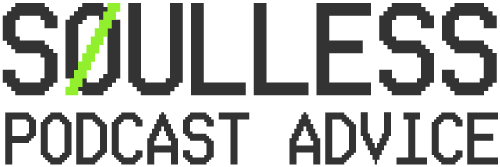If you want to improve and grow your show, it’s important to understand as much as you can about your listeners.
When you know who your listeners are and what keeps them coming back to the show, it gets easier to find find more people like them and talk about the show in a way that hooks them.
One of the best ways to gather this type of audience research is by conducting podcast listener interviews.
In this post, we’ll go over the steps for reaching out to listeners to line up the interviews, as well as specific questions to ask during the interview.
By the end of this post, you’ll have a better understanding of how to conduct a podcast listeners interview that will help you learn more about your audience and improve your show.
Step 1: Identify Your Ideal Listeners
Before you start reaching out to listeners to line up interviews, it’s important to identify your absolute ideal listeners.
Who are you most interested in hearing from? Are there specific listeners that you think would have particularly valuable insights to share?
By identifying the specific people you want to attract more of, you’ll be able to focus your efforts and make the most of your time.
Step 2: Reach Out to Listeners
Once you’ve identified a handful of your ideal listeners, it’s time to start reaching out to line up interviews.
There are couple different ways you can do this.
Reach Out to Specific Listeners Directly
If you’re connected on social media, you can reach out to specific listeners directly through platforms like Twitter, Instagram, or Facebook. Simply send them a message asking if they’d be interested in participating in a podcast listener interview.
If you have their email contact info, you can apply the same approach to email.
Send Out an Open Call for Interviews
You can also put out an open call for interviews through your podcast, emails list, social media accounts or on your website.
This method isn’t ideal as the people who sign up may not necessarily be the people you want to attract more of, but their feedback can still be helpful.
No matter which method you choose, be sure to personalize your message and explain why you’re interested in conducting the interview. This will make it more likely that listeners will want to participate.
Step 3: Prepare Your Questions
Before you conduct the actual interview, it’s important to prepare a list of questions that you’ll ask. Some ideas for questions to ask include:
- How did you first discover the podcast?
- What keeps you coming back to the podcast?
- Are there any specific episodes that stood out to you and why?
- What do you like most about the podcast?
- Is there anything you’d like to see more of on the podcast?
- Do you have any suggestions for improving the podcast?
- What other creators or brands do you follow?
You can also ask open-ended questions that allow listeners to share their thoughts and experiences in their own words. This can be a great way to get a more in-depth understanding of what they love about your show.
Step 4: Conduct the Interview
Once you’ve lined up a few listeners and prepared your questions, it’s time to conduct the actual interviews.
You can do this over the phone, through a video call, or by sending the questions via email and having the listeners respond in writing. Whichever method you choose, be sure to be respectful of your listeners’ time and make sure the interview is as enjoyable and engaging as possible.
Step 5: Analyze the Results
After you’ve conducted your podcast listener interviews, it’s important to analyze the results to see what patterns emerge.
Look for common themes in the responses you received and see if there are any specific suggestions that are mentioned frequently. This can help you identify areas where you’re doing well and areas where you could improve.
It’s also a good idea to keep track of any specific examples or anecdotes that listeners share.
These can be particularly valuable for getting a deeper understanding of what your listeners love about your show and what keeps them coming back.
Conclusion
By following these steps, you can conduct a podcast listeners interview that will help you understand what keeps your listeners coming back for more.
By gathering this valuable feedback, you’ll be able to make informed decisions about how to improve your show and better serve your audience.
